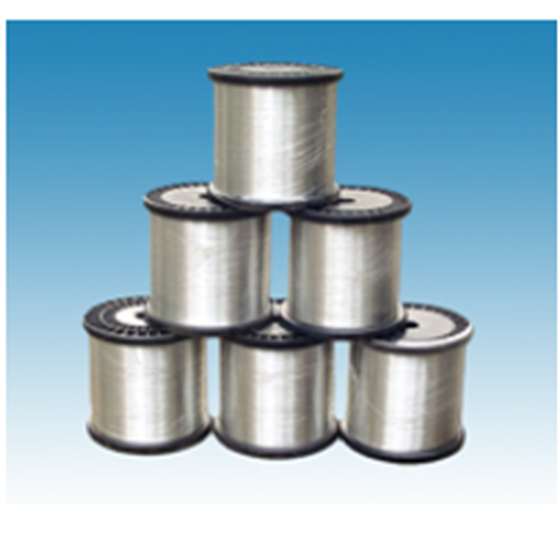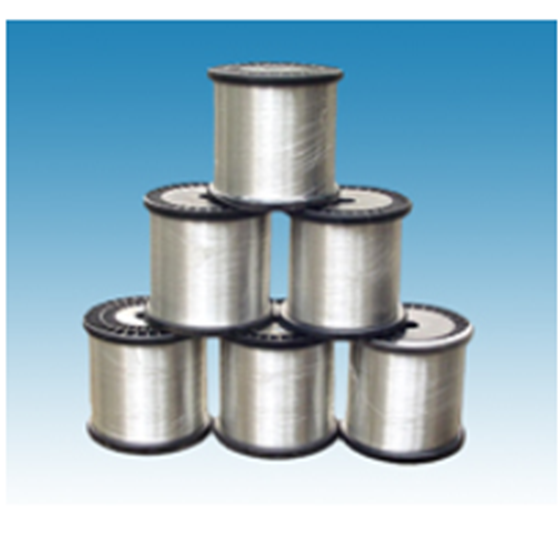In today's competitive industrial environment, finding the right materials for electrical components is essential. Silver-plated nickel wire is becoming an increasingly popular choice for many industries due to its unique combination of properties, offering both conductivity and durability. However, selecting the appropriate wire for your electrical applications requires a thorough understanding of the material's features and its benefits. In this article, we will explore the key advantages of silver-plated nickel wire and help you determine if it is the right fit for your electrical components.
What is Silver Plated Nickel Wire?
Silver-plated nickel wire is a type of wire where a thin layer of silver is bonded to the surface of a nickel wire. The primary purpose of this plating is to enhance the wire's conductivity and corrosion resistance. Nickel, a highly durable and resistant metal, provides strength and longevity to the wire, while the silver plating ensures superior electrical conductivity and improves its performance in various demanding applications.
Silver plating on nickel is typically done through electroplating, which ensures a consistent and smooth silver coating over the nickel base. The result is a wire that combines the best properties of both metals: nickel's durability and silver's excellent conductivity.
Advantages of Silver-plated Nickel Wire for Electrical Components
Superior Conductivity
One of the most significant benefits of silver-plated nickel wire is its superior electrical conductivity. Silver is the best conductor of electricity, better than copper, but its cost and susceptibility to corrosion make it less ideal for certain applications. By plating nickel wire with silver, manufacturers can harness the high conductivity of silver while retaining the durability and strength of nickel. This combination makes silver-plated nickel wire an excellent choice for electrical components that demand high performance, such as connectors, circuits, and sensors.
Enhanced Durability and Strength
Nickel, the core material in silver-plated nickel wire, is known for its strength and resistance to corrosion and oxidation. Unlike pure silver, which can tarnish and degrade over time, nickel's resilience ensures that the wire maintains its integrity under harsh environmental conditions. This makes silver-plated nickel wire an ideal choice for electrical components that need to withstand high temperatures, moisture, and other environmental factors that could cause degradation in traditional wire options.
Improved Corrosion Resistance
The silver plating on the wire not only improves conductivity but also enhances its resistance to corrosion. Silver-plated nickel wire is less prone to rust and oxidation than uncoated wires, making it suitable for use in humid or harsh environments. The silver layer acts as a protective barrier that prevents moisture and other corrosive elements from affecting the underlying nickel, thereby ensuring long-lasting performance in demanding applications.
Cost-effectiveness
While pure silver is an excellent conductor, it is also quite expensive. By using silver-plated nickel wire, manufacturers can achieve a similar level of electrical performance at a significantly lower cost. Nickel, being a more affordable material, provides the bulk of the wire's strength and resilience, while the silver coating delivers the necessary conductivity. This cost-effective approach allows businesses to benefit from high-performance electrical components without incurring the high costs associated with pure silver.
Versatility in Applications
Silver-plated nickel wire can be used across a wide range of industries and applications. From telecommunications to aerospace, automotive, and medical devices, this wire is found in components that require both electrical efficiency and physical resilience. It is particularly popular in the production of connectors, sensors, circuit boards, and other electronic components where optimal conductivity and durability are paramount.
When to Choose Silver Plated Nickel Wire for Your Electrical Components
While silver-plated nickel wire offers numerous benefits, it may not always be the ideal solution for every application. Here are a few factors to consider when deciding whether silver-plated nickel wire is the right fit for your electrical components:
Environmental Conditions
If your electrical components will be exposed to extreme temperatures, moisture, or other harsh environmental conditions, silver-plated nickel wire is an excellent choice due to its durability and resistance to corrosion. However, in extremely low-temperature environments, consider the material's behavior at sub-zero temperatures to ensure it performs optimally.
Required Conductivity
If your application demands high conductivity—such as in power transmission or precision electronics—silver-plated nickel wire is a perfect fit. The silver plating significantly boosts the wire's electrical performance, making it ideal for applications where minimal resistance is critical.
Budget Constraints
If your budget allows for higher investment in materials, and electrical performance is a priority, silver-plated nickel wire is an effective choice. However, if cost constraints are tight, you may want to explore alternatives, such as copper-based wire or nickel-based wire without silver plating.
Long-term Reliability
For applications where long-term reliability and minimal maintenance are crucial, silver-plated nickel wire is a strong candidate. Its ability to resist corrosion, combined with the inherent strength of nickel, ensures that components made from this wire can perform for extended periods, even under difficult operating conditions.
How to Select the Right Silver-Plated Nickel Wire Supplier
Choosing the right supplier for your silver-plated nickel wire is crucial for ensuring the quality and performance of your electrical components. Here are a few tips for selecting a reliable manufacturer or supplier:
- Experience and Expertise: Look for a supplier with years of experience in producing silver-plated nickel wire. This ensures they have the necessary expertise to provide high-quality wire that meets your specifications.
- Quality Certifications: Choose a supplier that adheres to international quality standards, such as ISO certifications. This ensures that their wire is manufactured under strict quality control processes.
- Customization: If your electrical components have specific requirements, such as particular dimensions or custom plating thickness, work with a supplier who can offer tailored solutions.
- Customer Support: A responsive and knowledgeable customer support team can assist with technical inquiries, delivery timelines, and product-related questions, helping you make informed decisions.
Conclusion
Silver-plated nickel wire offers an excellent combination of electrical conductivity, durability, and cost-effectiveness, making it an ideal choice for a wide range of electrical components. Whether you are working on connectors, circuit boards, sensors, or any other electronic device, silver-plated nickel wire delivers optimal performance in challenging environments.
If you are considering upgrading your electrical components or looking for more reliable, high-performance wire options, silver-plated nickel wire should be at the top of your list. By partnering with a reputable supplier, you can ensure that you are receiving the highest quality materials to meet your specific needs.
To find out more about how silver-plated nickel wire can enhance your applications, contact us today for expert advice and product recommendations tailored to your industry.








